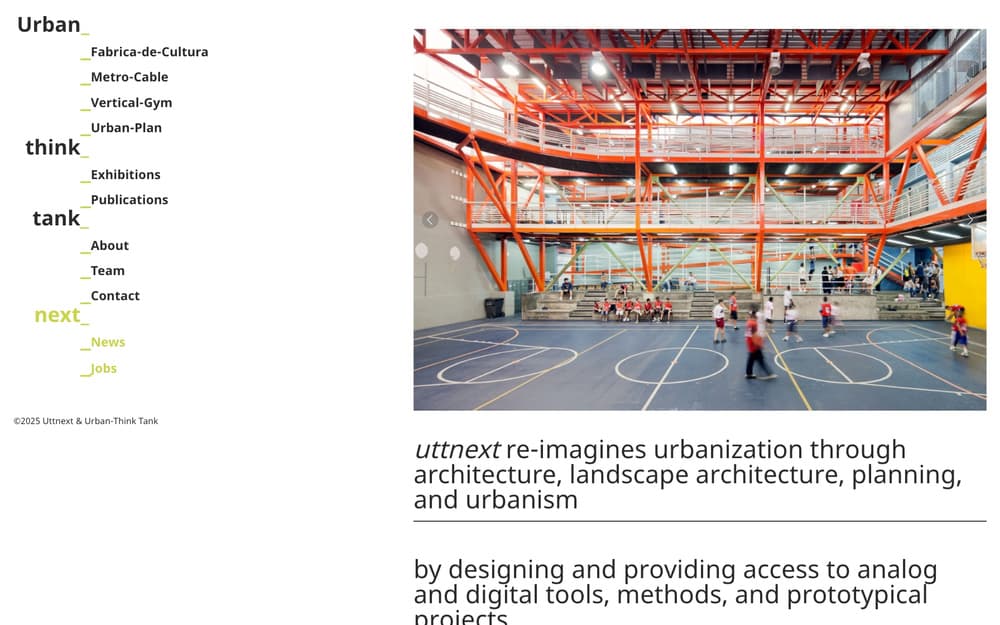Urban Think Tank next (UTT) is an architectural and urban design practice that focuses on reimagining urbanization through innovative projects and methods. The organization, led by figures such as Hubert Klumpner and Michael Walczak, operates with a global perspective, engaging in projects across various continents.
UTT's approach is characterized by a commitment to social change, addressing issues like inequality and injustice through the power of design. Their projects range from urban planning initiatives to specific architectural designs, such as the "studio mobil / think tank station" in Vienna, which served as a nomadic outdoor agora exploring the future of food and urban spaces.
Their work also includes projects like the "Climate Innovation Districts" in Vienna, which tests design processes for post-industrial sites to incorporate new housing strategies, and the "Green Corridors Initiative" in Barranquilla, Colombia, which aims to create sustainable urban environments.
UTT's diverse portfolio reflects their engagement with various urban challenges, from transportation systems in Caracas to educational facilities in Colombia. Their methodology often involves collaborative processes and community engagement, as seen in their work on the Naschmarkt in Vienna, where they co-designed a climate corridor prototype.
Through their projects, Urban Think Tank next demonstrates a commitment to enhancing the quality of life in urban environments, leveraging design as a tool for social and environmental improvement. Their work underscores the importance of thoughtful urban planning and design in addressing contemporary urban challenges.
